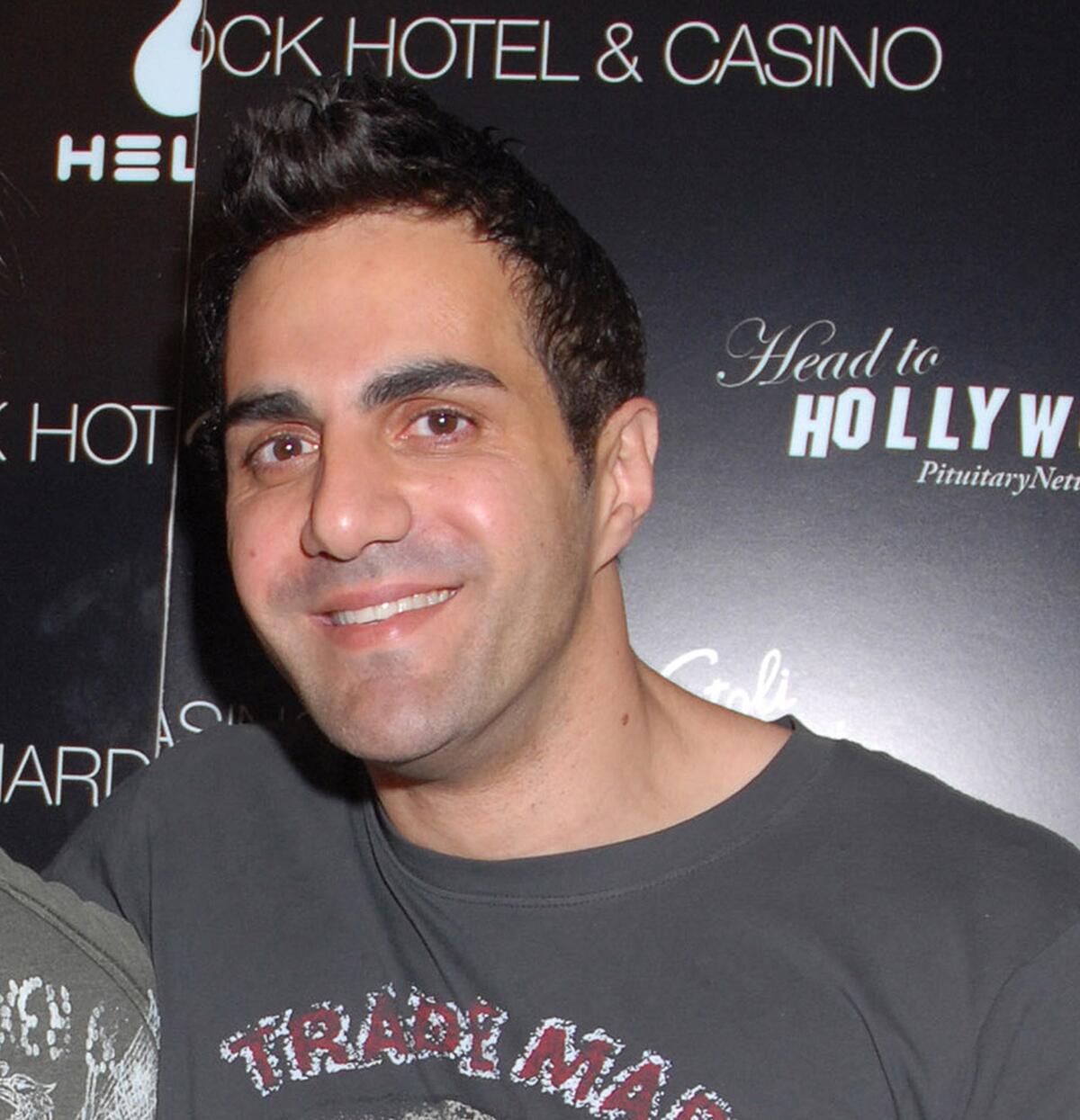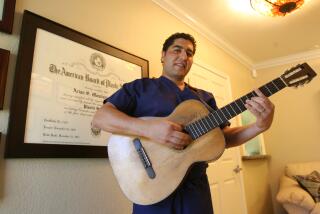Former 1-800 GET-THIN doctor gets 7-year sentence for multimillion-dollar fraud scheme

A former doctor convicted of fraudulently submitting nearly $120 million in claims related to the 1-800-GET-THIN Lap-Band surgery business has been sentenced to seven years in federal prison.
Julian Omidi, 58, of West Hollywood was sentenced Monday by U.S. District Court Judge Dolly M. Gee. The judge also imposed a five-year probation period on Surgery Center Management LLC, an Omidi-controlled Beverly Hills-based company.
In the coming weeks, Gee is expected to hold a separate hearing to decide on restitution and forfeiture in the case, along with setting a fine for the Beverly Hills company.
The 1-800-GET-THIN billboards once dominated the Los Angeles landscape with claims of a one-hour procedure and an easy insurance verification process. But a federal jury in December 2021 found that the business was a criminal scheme that bilked millions from several insurance providers, including the Tricare healthcare program for military service members.
“Mr. Omidi made millions at the expense of the multiple victim companies he defrauded, and he violated his oath to ‘do no harm’ by callously misleading patients about the need for a sleep study and subsequent weight loss surgery,” said Donald Alway, the assistant director in charge of the FBI’s Los Angeles field office.
In a previous statement to The Times, an attorney for Omidi said the charges against him were “based on false claims” and “fraught with government misconduct.”
Omidi controlled several entities in the GET-THIN network. Prosecutors say Omidi incentivized employees to ensure patients underwent sleep studies and then falsified the results to show that patients had obstructive sleep apnea to help them qualify for insurance coverage for the weight loss surgery.
Those results were then filed with insurance companies to pre-approve the Lap-Band weight-loss surgeries. The 1-800-GET-THIN business received approximately $41 million for those procedures, according to prosecutors. While not all patients were approved to receive the surgery, prosecutors say GET-THIN would bill the patient roughly $15,000 for each sleep study, totaling $27 million in payments from insurance providers.
Omidi and his Beverly Hills-based company, Surgery Center Management, were found guilty of 28 counts of wire fraud, three counts of mail fraud and one count of conspiracy to commit money laundering. Omidi was also found guilty of two counts of making false statements relating to healthcare matters, one count of aggravated identity theft and two counts of money laundering after a 48-day trial in downtown Los Angeles.
“As found by the jury, the defendant Julian Omidi deliberately and repeatedly acted with an eye towards business and profits, rather than in the interest of GET-THIN’s medical patients, by inducing patients to undergo medical treatment premised on fraud rather than medical necessity, including surgeries that carry significant risks and life-long health impacts,” said U.S. Atty. Martin Estrada.
A series of Los Angeles Times columns from 2010 to 2014 detailed how five patients died after they received Lap-Band surgeries at clinics affiliated with 1-800-GET-THIN.
During a 2009 inspection, the Department of Health and Human Services found unsanitary conditions, inoperative scrub sinks, one-time-only equipment being reused and several other deficiencies. The inspector shut down the clinic for a day, but further action was not taken at the time.
Omidi’s medical license was revoked in 2009, and he was arrested in 2018 along with Dr. Mirali Zarrabi, 59, who has since been acquitted of all charges in the case, according to prosecutors.
The insurance victims in the case included Anthem Blue Cross, UnitedHealthcare, Aetna, Health Net, Operating Engineers Health and Welfare Trust Funds and others, according to court documents. In 2014, federal agencies seized more than $110 million from the 1-800-GET-THIN network in securities and funds.
More to Read
Sign up for Essential California
The most important California stories and recommendations in your inbox every morning.
You may occasionally receive promotional content from the Los Angeles Times.










